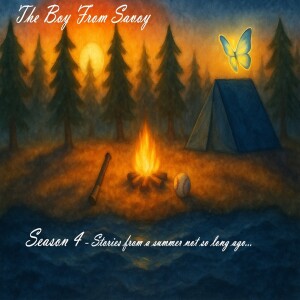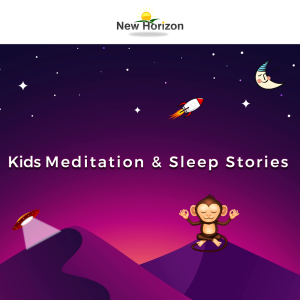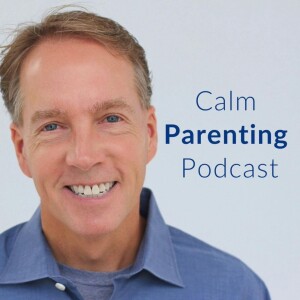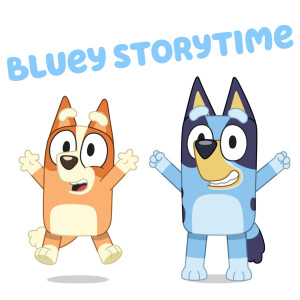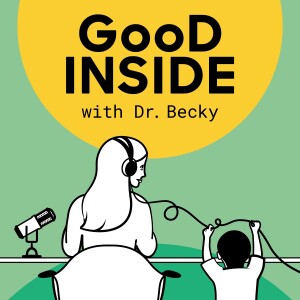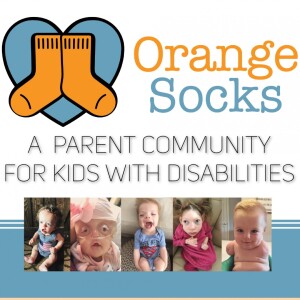

Inspiring life despite a diagnosis
https://orangesocks.org/feed/podcast/Episode List

Erick: Down syndrome
Erick found out shortly after birth that his daughter Erika has Down syndrome. Erick believes that Erika has made him a better, more patient person and parent. Finding out your daughter has Down syndrome Erick didn’t find out about her diagnosis until after she was born. Erick said, “Maybe five minutes in. I remember the doctor, she actually said “I don’t know but it seems like your daughter might have Down syndrome. I have a feeling from what I’m seeing.” My reaction was “okay, she can be wrong, or she can be right, but she looks healthy so that’s fine.” But then, when it really hit me was when I looked at my wife and I saw her face. She was freaking out, she was silent. She is really good at controlling her emotions, but yeah, I still remember her eyes when she looked at me and that really hurt. That hit me like a ton of bricks, that is when I realized yeah, we may have a problem here.” Ongoing medical issues Erick’s family was very supportive. They didn’t care if Erika had Down syndrome or not, the problem wasn’t her Down syndrome but her other health challenges. Erick explained, “The issue was that she was not digesting her milk. So basically, she was regurgitating constantly, and we were like “why is she doing that?” and she started losing weight and it got to the point where the doctor told us “Something is wrong.” He continued, “They ran tests, and they were pretty blunt, they told us “She might die.” Erika had a successful microsurgery that cleared a blockage in her duodenal passage that allowed the milk to be absorbed. She continued to have health problems as time went on. Erika developed something called Thrombocytopenia. Erick said, “there is this agent in the blood that she lacked at the time. That agent basically keeps you from bleeding through your pores. So, it seems like she had a little rash, when I reality she was basically bleeding at a microscopic level.” That has since cleared up, but she now has hypothyroidism. How their other children have been affected Erika is Erick’s third child. Erick explains how Erika’s birth affected her older siblings. “Well Wendy was one year older than Erika was so Wendy didn’t understand. Wendy was born with Asperger’s. At the moment, we had no idea that she had Asperger’s. But Keira the oldest she was in love with her. I still remember she brought her this little plushie pink baby toad and it reminded me of her. When Erika was born, she had this pinkish hue to her skin, so we said, “Oh this kind of looks like you.” And we were always playing with her. But she loved her little sister and even to this day you know she takes care of her, and they have a good bond. It is a beautiful thing.” The joys of a Down syndrome diagnosis Erick said, “Everything collided in this harmonious way. A lot of things that were amiss, and situations with other family members, everything came together. She brought that type of harmony into our home and to this day she is the light of this house. She is always making us laugh, she sees that, and she is pretty intuitive. If she sees that someone is sad or something, she will approach you and do or say something just to make you smile. Advice for a parent with a Down syndrome diagnosis Erick wants people to experience being with a beautiful person who is full of joy and love. He said, “If I were able to build a time machine I would go back and tell myself, “Brother you have won the lottery.” And I would love to tell people watching us right now that these children will bring more joy to your life than anything negative that you might be thinking in your mind. Let the fear go. Because this situation is only going to make you a better human being. It is only going to make your family come together as nothing else can. The moment that you don’t see your child even if it’s because you’re on a trip or a business trip or whatever, you miss them so much. He continued saying, “If you are a parent that is actually thinking that maybe you shouldn’t have this child and you are scared, which is normal, don’t be. Just let them come. They will change your life for the better. Don’t miss out on that opportunity because you will regret it if you do and as a friend I really hope that you don’t have to go through that pain, the pain of knowing that you could have been surrounded by a beautiful being that is full of joy and love and nothing will be able to basically supply that source of happiness and have that baby, take care of them.”

Daniel: Menkes Disease
Daniel and his wife spent 11.5 years of their life devoted to taking care of their son Lucas. Lucas had a very rare condition called Menkes disease. Despite being total care, Lucas brought love, joy and happiness to their family. Menkes syndrome: Daniel’s Story What is Menkes disease? Menkes disease is a disorder that affects copper levels in the body. Menkes disease is characterized by sparse, kinky hair which is known to break easily, failure to thrive, seizures and deterioration of the nervous system. People who have Menkes disease have a life expectancy of three to ten years. Finding out your son has Menkes disease Daniel shared his experience about learning his son had Menkes disease. After Lucas missed milestones around nine months old, they sought help. They were told to see a geneticist who thought because of Lucas’ unique hair texture that he had a copper related disorder. After meeting with him Daniel said, “I went home and Googled copper related syndromes and there are two. Wilson’s disease is when you have too much copper, but you can live a long life and manage it. There are three or four medications for it now, so I was rooting for Wilson’s disease. The other is Menkes disease where you have not enough copper and you live a very short life and it is full of challenges; like he probably won’t walk, talk, or sit unassisted and those were all true for Lucas. Seizures are indicated, we didn’t see very many with Lucas. So, sure enough within a few months the diagnosis came back and that is a blessing in a way that the diagnostic odyssey was short, but it’s bad news. Dealing with a terminal diagnosis They were told Lucas’ life expectancy was between three to ten years. Upon hearing about his diagnosis Daniel talked about his experience. He said, “It changed everything you know, and he was one years old when we got the diagnosis, and everything changed. We thought for a while that there would be no happiness or joy or none of the normal expectations of what you thought your life with your child would be, everything seemed to get derailed.” When asked if they grieved after finding out Lucas’ diagnosis, Daniel said, “And then there is the grief of all these little things. The realization that he won’t play sports, you grieve that a little bit, or they say he will never talk.” He continued saying, “I’m still going through the grieving process….And since then, I’ve come to find out all these subcategories of grief that we were going through. There is anticipatory grief because you know that he will die before us, the prognosis was three-ten years and in our case, he lived 11 and a half years.” Taking care of someone with Menkes disease Daniel shared the daily schedule of caring for Lucas. Lucas would wake up at seven AM. He would have his daily meds that were timed with each meal, had a catheter every three hours, diaper changed, and be fed through his G-tube. There were small pockets of time throughout the day where he didn’t require active care. Lucas was lucky, he had a loving nurse who helped take care of him for eight years. She would take care of Lucas when he came home from school until he went to bed at seven PM. Daniel described having the nurse as a huge help. He said, “..it was a burden off us” Impact of having a child with Menkes disease Lucas had a younger brother, Daniel described how Lucas impacted his life. He said, “Now for his younger brother he never knew anything other than life with Lucas who had a different path and special needs and high complex medical care. I think it made him very compassionate, caring and very concerned.” For Daniel and his wife, Lucas taught them to slow down and accept things for the way they are. “It’s an odd thing to say, and then for my wife and I too, I think we had to slow down, we had to calm down, we had to accept things that weren’t the way we wanted them to be. It really became a lot of those aphorisms you hear all the time. Like “No one is guaranteed tomorrow”, or ‘Live for the moment, or ‘Don’t sweat the small stuff’. We felt an extra permission to live that way and tried to.”

Brittney and Derik
Brittney and Derik share what SHINE syndrome is and how it has made an impact in their life. Their daughter has been a joy in their life despite some of the difficulties that come when having a child with SHINE syndrome. SHINE syndrome: Brittney and Derik’s Story What is SHINE syndrome? SHINE syndrome stands for sleep disturbances, hypotonia, intellectual disabilities, neurological delays, and epilepsy. There are only 150 known cases world wide, making the disability extremely rare. Brittney, a parent of a child diagnosed with SHINE, said, “We think that there are a lot more that are under-diagnosed with either autism or epilepsy. A lot of children with SHINE do have either one or both.” Early signs of SHINE The first thing Brittney and Derik noticed was that their daughter was diagnosed with torticollis. “Her head was basically stuck in one direction; she would constantly look that way…that cleared up with physical therapy and then she was still developmentally delayed at that point,” Brittney recalled. She continued saying that she wasn’t interested in toys, and she wasn’t rolling over. This was atypical for infants. When compared to her two neurotypical boys, Brittney and Derik knew something was wrong. SHINE syndrome is a spectrum disorder After being diagnosed when their daughter was two years old, Brittney joined a SHINE Facebook group for parents. She learned that each child’s disorder was unique because of the wide range of abilities and assistance needed. “Some of them don’t walk, some of them don’t talk and then some of them did and then they regressed..A lot of kids will have a seizure for instance and lose progress in their development.” Brittney said. Some children are total care, which means every aspect of the child’s life requires assistance, and others are independent. There is one known case of a father with SHINE syndrome who has a child with SHINE as well. Getting SHINE diagnosed After doing a genetic test on their daughter, Derik and Brittney were glad they found answers. Derik said, “We definitely wanted to know what was going on with her..so, it was kind of comforting to know what the diagnosis was and what was going to be happening and just be able to help her treat that was a good thing too. And knowing what we were going to be able to have an answer going forward to be able to address what was going on.” Brittney shared, “We have this answer of a reason why she is having all these difficulties and it brings us all hope that hopefully one day be able to support each other in the SHINE community and hopefully be able to help more families be able to know.” The joys of SHINE syndrome “I think just the light that she brings, she is really joyful, she just makes you happy to see her smile. She gives people hugs, she just runs up to strangers and gives people hugs and says hi to them. She really is just joyful to be around, so I really enjoy her presence. Just being around her lights up everything in the world and the people around her.” Derik shared. Advice for parents of children with SHINE syndrome Brittney’s advice to parents is to do your research and be prepared to educate your doctors. Most doctors are unfamiliar with SHINE syndrome because of how rare it is. Brittney said, “ A lot of the doctors that I see are like, ‘what is it?’ or I tell them now, look it up ahead of time, this is what my daughter has so that they are pre alerted so they know and they can research a little bit, because there are some articles and some research that has been done. It’s minimal but there is a little bit. She also advised to be involved in the SHINE community. They have a great support system through the community. They have meetings once a month where they can meet and pick each other’s brains about issues or concerns they are having. This has become a great source of information for Brittney and Derik. Brittney shared, “I’ve learned more I think about SHINE during those informal meetings from other parents’ questions and there are some more experienced parents with the SHINE syndrome that will answer and give us some advice on how to navigate different things.”

Wendy and Matt: Down syndrome
When Wendy first found out that she had a son with Down syndrome she was devastated. She felt as if her life was over and didn’t know what life would look like for their future. 32 years later she now realizes how great her life is with her son Matt in it. My life is ruined When Matt was 3 hours old, Wendy recalls her experience, “Yeah well so a lot of emotions, a ton of emotions. I think every emotion known was going through. I experienced um shock, fear, trauma, devastation, anger, what did I do?, um why me?, All of those because what I did know about Down syndrome I was afraid that my life had just been ruined.” After a few days in the NICU Matt was able to go home. Wendy shared what leaving the hospital was like, “The truth is by the time I left the hospital I had bonded with him..so we stayed in the hospital with him and I you know had a lot of time just he and I, when the nurses would bring him in to me I couldn’t see all of those abnormalities..all I could see was this perfect little baby.” Proving the naysayers wrong Wendy had one goal when she left the hospital: to prove the naysayers wrong. She shared what goals and hopes and dreams she had for Matt. She said, “So we walked out of the hospital doors and I had these goals, he was going to drive, he was going to work, he was going to get married, he was going to finish high school, he was going to date, he was going to do all these things.” After 32 years Wendy shared, “He’s done things that even I, I’ve underestimated in my own son you know. But at the same time we had to shift those goals and dress that I have for when I walked out of the hospital, we just created new goals and dreams.” Fighting the school system One of the hardest things Wendy had to do for Matt was fighting to get a good education. She explained that while she wanted him to be mainstreamed she understood that Matt needed a different approach to learning. He attended a cluster classroom. The downside to the cluster classrooms was the inconsistency. Each year the cluster classroom would switch locations. Wendy said, “So for us the cluster worked well. It was just unfortunate that it moved from school to school and so every year it was him getting to know a whole new set of other students and teachers and staff.” The cluster classrooms weren’t the other issue Wendy and Matt faced while working with the school system, She said, “They even went as far as trying to guilt me into backing off because my request was taking away from another child’s need.” It would take too long to talk about the joys Wendy said “..there is joy in everything you know we celebrate. I did not know this life would be a life of celebration. We celebrated when he learned to tie his shoes, when he learned to button up his pants..there are hoys in watching him accomplish what he wants to do..you can’t even pinpoint all of the joys.” “You’re in for a wonderful ride, you know this, I know it’s hard to believe this right now but trust me this life is going to be amazing.” Finding a great man For many years Wendy was a single mom. She felt as if she would be alone forever. She was hesitant to date anyone for fear of rejection for both her and Matt. However, once she accidentally met John their lives changed for the better. “John is awesome, he came into my life just when I needed him and when it became serious and I felt brave enough to introduce him to matt..I mean we’ve been together for a good 25 years nd so he and Matt are like buds..they just go hang out..i just love watching how he treats my son.” Wendy shared. Writing a book from life experiences Wendy took all of her life experiences and situations and was able to write them as a book to help other parents going through what she did. She said, “Every chapter is a story and it’s a situation he’s put me in whether it’s embarrassing or in a learning opportunity..so what I’ve done is tried to make it a book of humor because in this life we need to laugh.” Wendy’s book is called, ‘Big People Don’t Pee in the Park: A Mother and Son’s Journey with Down syndrome’. It was published October 3 2023 just in time for Down syndrome awareness month.

Madison and Ty: Expecting a Terminal Baby
During a routine ultrasound, Madison and Ty found there was something was wrong with their baby boy. When they went to the specialist, they were told their baby’s bladder was large, and his kidneys were covered in cysts and had little to no function- a condition that is incompatible with life. Devastated, Madison thought about the possibility of carrying their son as long as she could, so they could donate his organs. They learned to qualify for organ donation, he had to be carried to 36 weeks’ gestation, and weigh at least 6 pounds- this became their goal. After delivery, their son, who they named Cameron, was placed on Madison's chest and she said it was “the most magical, best feeling in the whole world.” Doctors confirmed there was nothing they could do to intervene. Madison and Ty said they were confident Cameron didn’t feel any pain, and it was the best decision for them. Ty said that when he got to hold Cameron that “it was perfect, the world was perfect, everything was right.” Cameron lived for two hours and 43 minutes and Ty says, “for two hours and 43 minutes the world was perfect.” When asked how that experience changed their lives, Madison said “it puts everything into perspective, our lives are so short. I want to be so positive; I want everybody that knows me to feel my love for my son.” Ty said that it had helped him to appreciate time and people more. He said, “I felt a new kind of love that I didn’t know existed, and that was special, it was so special.” Ty said advice he would give is that “your wife probably knows best. She has the closest connection, and she knows things that you don’t know or can’t experience, and you should trust her. I chose that whatever my wife would like to do, is what we are doing do. And that was the greatest decision that I’ve ever made. He said you get to experience good things out of it. Do your research, listen to your doctors they have a valued opinion, they are looking out for you as their patient, but this is your life.” Madison says the best advice she can give is to just acknowledge that it’s the worst thing in the world. For somebody in that situation, I would say I’m always here. I know it’s terrible but I’m always here. Ty and Madison loves to talk about Cameron. They want to take every opportunity to talk about him. Ty says "everyone apologizes and says, “oh I’m so sorry I didn’t know you lost your son.” Which he replies “don’t apologize, let me tell you about him.”
Create Your Podcast In Minutes
- Full-featured podcast site
- Unlimited storage and bandwidth
- Comprehensive podcast stats
- Distribute to Apple Podcasts, Spotify, and more
- Make money with your podcast
